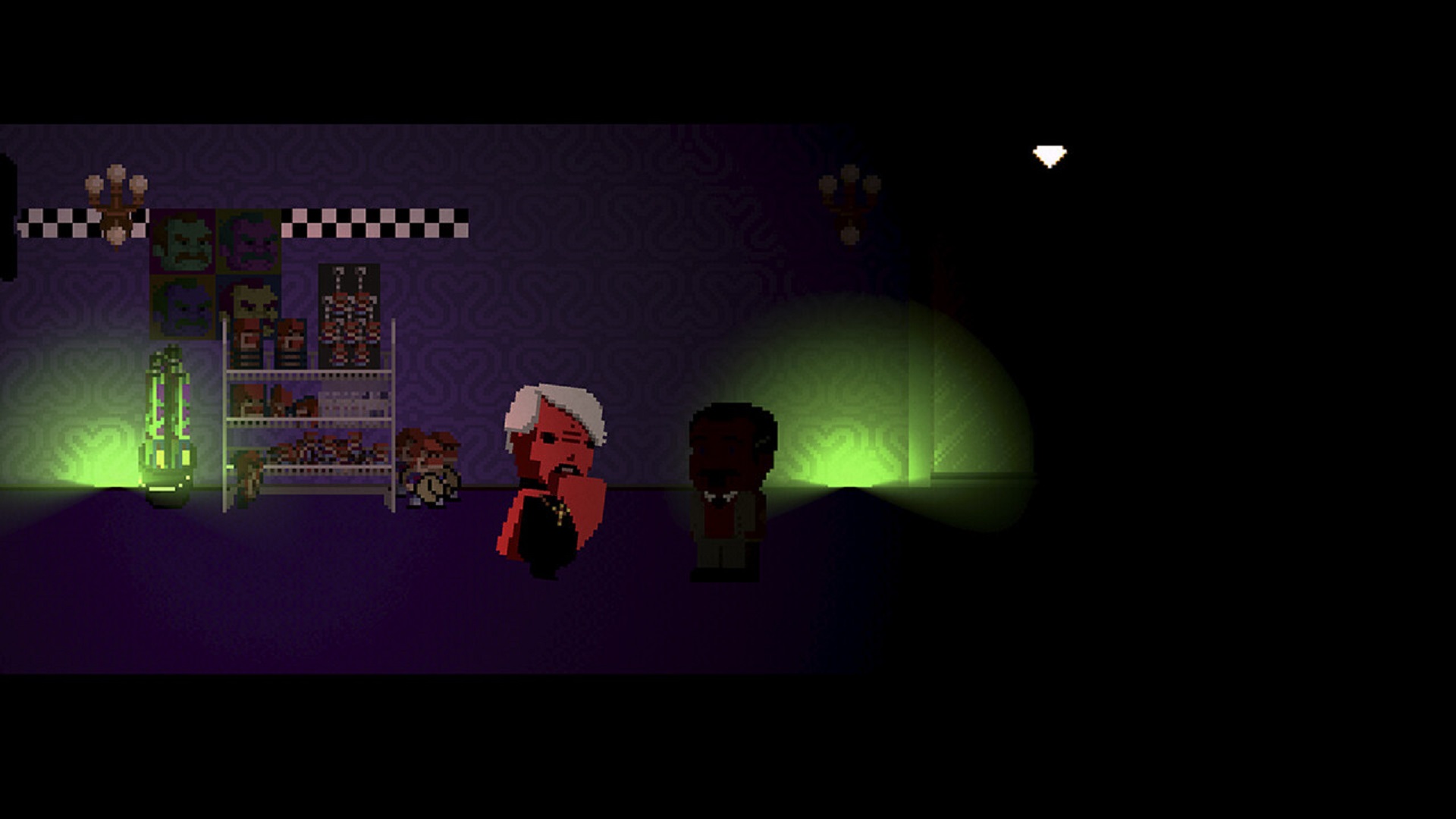
In Lakeview Cabin 2, Dying Horribly is the Point
Lakeview Cabin 2 is a game that truly explores what it would be like to be chased by killers from a horror movie. Mainly, in that you’re going to die. A lot. So, how will you avoid deadly masked murderers and crazed old ladies? That question forms the core of the experience in playing this game. What tools are on-hand in the hotels and vacation homes you’re playing through? What’s a good way to trap a slasher villain. This game is about trying to figure that out and often failing.
I have beaten the final villains and monstrous creatures in most of the horror games I’ve played. I haven’t always gotten a happy ending afterwards, but I’ve usually killed whatever was out to kill me. What’s different about this title is that it will likely take dozens of tries to defeat one of your stalkers. While that sounds like the game is just hard, it’s not just that. It’s more that every single stage in the game is a colossal puzzle. One with multiple solutions, but puzzles nonetheless.
Every stage in Lakeview Cabin 2 is loaded with tons of items. Within a step of starting the first level, I found some darts on the ground. Some shears on a deck. Alcohol in a mini bar in the house. Would one of those things be enough to take down a killer? What about the microwave you find? Could you overcome a supernatural murderer with a typewriter or a camera? While there are many obvious weapons in this game, it’s not always apparent what will hurt enough to take down one of the killers. The only way to find out is to try them out.

That’s not easy at first. That’s because you really don’t know who your killers are at the start of each level. You have no idea what they’re trying to do, either. Each of the villains has something they’re trying to do throughout the level, typically. That, or something triggers their appearance or activates some behavior. It’ll take a good few tries to figure out what makes the killers appear or start to hunt you down. Is it nightfall? Some door you opened? A sound? You have to know that you’re being hunted, as well as why, before you have any chance of surviving.
This results in a game that focuses on being a hapless victim a lot. Lakeview Cabin 2 left me blundering around places, messing with stuff in the environment. I had been playing for about ten seconds before I had the youngest child smoke some weed and throw darts at her parents. I thought it was just a towel and not a tremendous blunt, in my defense. Beyond that, I walked around the house, playing with toys and poking through cupboards. You’re typically playing as people who occupy a location, so there’s not much else to do but let your curiosity carry you.
This is a lot of fun, too. There’s all kinds of little toys and gadgets. You can turn on cymbal monkeys. Take a shower. Plow through the deck in your car. The game has a Scribblenauts-like feel in how you spend so much time figuring out what things can do and how they’ll interact with one another. Maybe you can blow something up if you send a little toy car racing into something explosive. Even if you can’t, the little interactions you have with these objects make it fun to putter around. I liked figuring out what the items did and how they could work with other things.

It’s still a playground that will get you killed, though. That curiosity often lead me to some dark places as I explored. I played in a tree house for a few minutes, and moments later found a dungeon at the bottom of a well. I found a hidden room filled with horror memorabilia in the house thanks to a secret switch. There were some weapons and a hockey mask in a shed. The game quickly shifts from playful (well, violently playful) to unsettling and murderous. You almost forget that there’s killers coming for you while messing around with items. These little moments remind you of the danger you’re in.
If you keep letting curiosity push you forward, you’ll find trouble all on your own. I wanted to see if I could cross the lake in the first level of Lakeview Cabin 2. That was an extremely bad idea that saw me beaten to death by nude cultists in a pitch-black shack. Again, this game really feels like it’s trying to put you in the shoes of the initial victims in a horror movie. You know, the people who die BEFORE the plot begins. The folks who are just enjoying a trip and exploring their cabin. The ones who are attending a nice costume party where the costumes are just a bit unsettling. The ones who die because they stumbled across something they shouldn’t have.
This results in some interesting moments that create a unique story while you’re playing the game. Don’t get me wrong, there is a specific storyline going on here. It’s just running somewhere in the background of the game, and you’ll need to put in many attempts to put it together. However, my own moments of accidental discovery felt like I was creating my own horror movie, in a way. I wasn’t scripted to make these horrific discoveries, but my every interaction with the game lead me to a series of deaths unique to what I had done. The accidental cult discovery, the search for the missing kid, and my failed weapons all formed my own horror story.

This all leads to Lakeview Cabin 2 feeling like a game about coming to those gruesome ends and forming your own horror experience. Yes, there are ways to beat each level and survive. However, dying in your own way feels like it’s more of the point of the game. It feels like it’s about that experience in dying to something horrible and monstrous. Whether you’re messing around on vacation or actively trying to survive a killer, all of the options, mystery, and puzzles make it feel like the game is about the creativity that goes into dying. You’re in a kind of horror sandbox where you won’t directly choose how you die, but will find a unique death based on your choices and actions.
Lakeview Cabin 2, like my old favorite Friday the 13th on the NES, is a game about what it would really be like to be chased by a slasher villain. In giving you an abundance of tools, useless and useful, and villains with mysterious motives and actions, it sets you up to die. It almost feels cruel given how quickly and easily you can fail. If you’re persistent, maybe you’ll find something you can put together to survive. But again, living feels like less of the point than the struggle to survive itself. The strange ways you cause your own death feel like the core of the experience. It’s an incredible, jarring experience in orchestrating your own disturbing demise in ways you don’t expect until it’s too late.


